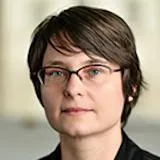Please note: this event has passed
An evening lecture and discussion with Dr Coreen McGuire
Responauts were people who depended on respirators to help them breathe. This technological interdependence meant that they adapted an extraordinary variety of technologies to live well with respirators and modify their personal environment. This kind of phenomenon was defined as ‘disabled expertise’ in Aimi Hamraie and Kelly Fritsch’s 2019 Crip Technoscience Manifesto, which explored how disabled technology modification has been commodified for use and devalued in practice. In this lecture, Dr Coreen McGuire takes up their manifesto’s challenge to combine disability history with science and technology studies by tracking the development of two technologies —the Selectascan/Possum and the Respirator Phone—to show how a user network galvanized individual inventions into disabled expertise. By analysing the technical discussions within Responaut, a British quarterly magazine published between 1963 and 1989, she explores the extent to which this user expertise was commodified by state and private interests. This new exploration of disabled innovation transforms our understanding of the nature of collective contributions to history of science and technology.
Speaker: Dr Coreen McGuire is Assistant Professor in Twentieth-Century British History at Durham University, and the author of Measuring Difference, Numbering Normal: Setting the standards for disability in the interwar period. Her current research focuses on the development and impact of the categories used to organise data to measure disability and this work is supported by a Wellcome University Award. She co-leads ‘The Measurement Lab’ with Professor Alex Broadbent at Durham University’s Institute for Medical Humanities. She is co-editor with Dr Joseph Martin of The British Journal for the History of Science book reviews section
Discussant: Dr Anna Maerker is a historian of science, technology and medicine at King’s College London and a current Digital Futures Institute Fellow. She is working on the material culture of STM in historical perspective, with a particular interest in technologies of the body.
The lecture will be followed by a drinks reception, 7-7.30/8pm.
Booking information
This lecture is free and open to all; to register please visit our Ticket Tailor page. If you book a ticket but find you are unable to come to the event, please kindly cancel your booking.
This event is wheelchair accessible. This event may be filmed and photographed, by attending you consent to appearing in any footage or stills of the event. To inform the organiser of any access requirements, please email digitalfutures@kcl.ac.uk.
Event details
Lecture Theatre 1Bush House
Strand campus, 30 Aldwych, London, WC2B 4BG

